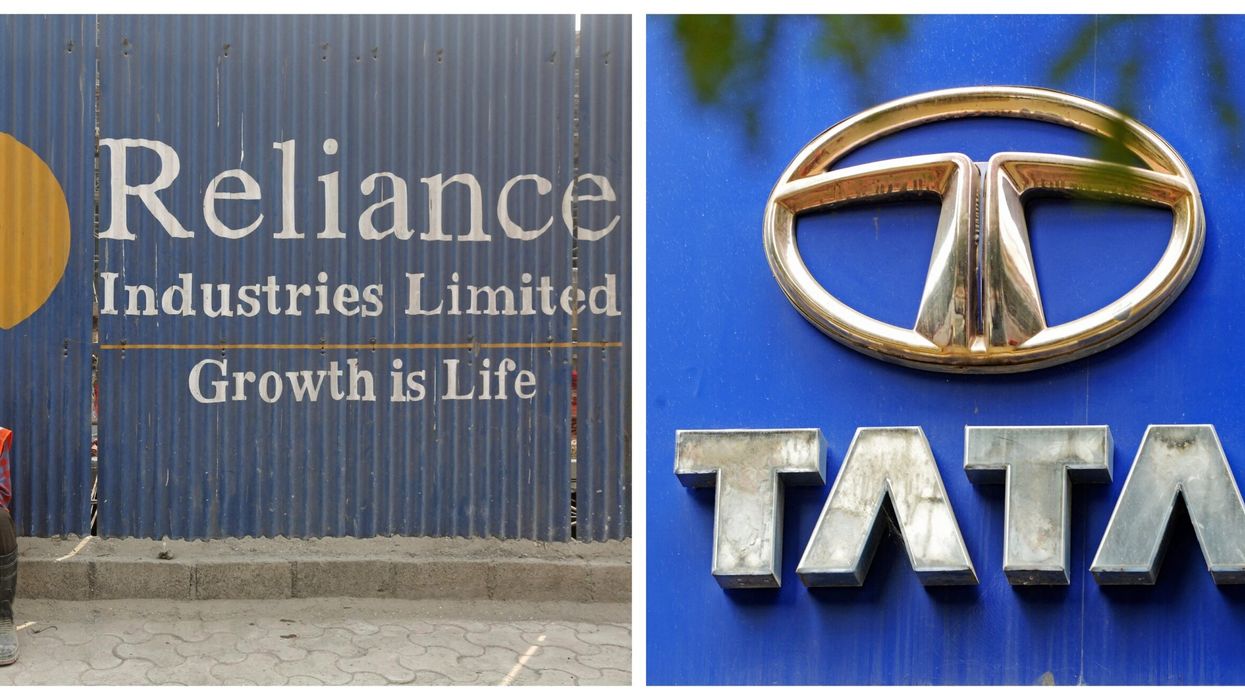TIME has included Reliance Industries and Tata Group in its list of the 100 World's Most Influential Companies of 2024. Reliance, led by billionaire Mukesh Ambani, is featured as 'India's Juggernaut,' while Tata Group also made the list, both in the 'Titans' category.
This marks the second time Reliance has appeared on the TIME list. Jio Platforms, which holds the digital properties of the conglomerate, was included in the inaugural TIME 100 Most Influential Companies List of 2021. Serum Institute is another Indian company on the list. TIME listed Reliance and Tata in the 'Titans' category, while Serum was listed under 'Pioneers'.
"Reliance Industries was founded as a textile and polyester company 58 years ago by Dhirubhai Ambani. Today the sprawling conglomerate -- which has aligned its growth with Indian Prime Minister Narendra Modi's vision for a 'self-reliant' India -- is the country's most valuable company, with a market capitalisation of more than £157.48 billion," TIME said. Now led by Dhirubhai's son Mukesh, the Mumbai-based company has ventures in energy, retail, and telecommunications, among others, and has made its chairman Asia's richest man, it said.
The publication noted that in February, Reliance secured a £6.69 billion merger deal with Disney's India business to dominate India's growing streaming market. "The deal will bring together more than 100 television channels and give the combined group around a 31 per cent share of India's streaming market compared to rivals Netflix and Amazon Prime with 8 per cent each," according to analytics firm Comscore.
Reliance has made significant impacts in several sectors in India by offering world-class products and services at affordable prices through various innovations. Under Mukesh Ambani, Jio revolutionised India's digital landscape with the most affordable mobile data tariffs globally. The company also set up the world's largest single-location refining complex. Reliance Retail is among the top 100 retailers worldwide and registered 1.06 billion footfalls across its 18,800+ stores in FY24, with 67 per cent of these stores in small towns and villages. Reliance is investing £7.87 billion in new energy and new materials and aims to reach net-zero carbon by 2035.
TIME described Serum Institute as the world's largest vaccine maker, producing 3.5 billion doses annually, including for measles, polio, and HPV. "Serum's CEO Adar Poonawalla says the company's success can largely be chalked up to its private ownership. Not being beholden to shareholders allows it to keep vaccine prices low (the R21 will cost £3.15 a shot)," the publication said.
Tata Group, founded in 1868, has a vast portfolio including steel, software, watches, subsea cables, chemicals, salt, grains, air-conditioners, fashion, and hotels. "But as rivals have aggressively courted new businesses, it struggled to keep up with stiff competition. In 2017, after over a century of family management, N Chandrasekaran took over as chairman despite having no personal ties to the family -- highly unusual when India's business landscape is ruled by family succession plans," TIME said.
As chair, Chandrasekaran has transformed the group by investing in tech manufacturing, AI, and semiconductor chips. In 2023, Tata became the first Indian company to assemble iPhones and is building another plant. In September, Tata announced a partnership with Nvidia to develop an AI cloud in India. "And this year, it announced plans for the country's first major semiconductor manufacturing facility. The moves seem to be paying off: in February, Tata's combined market capitalisation reached a whopping £287.40 billion, more than the entire economy of India's neighbour and rival, Pakistan," it added.
This is the fourth edition of the annual TIME100 Most Influential Companies list, highlighting companies making an extraordinary impact worldwide. To assemble the list, TIME solicited nominations across sectors, polled its global network of contributors and correspondents, and consulted outside experts. TIME editors evaluated each nominee on impact, innovation, ambition, and success. The result is a diverse group of 100 businesses helping to chart an essential path forward.
(PTI)





